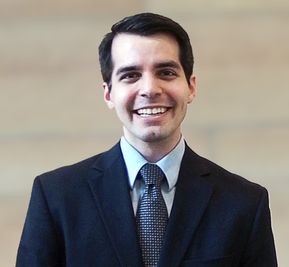
题目:Density of Demand and the Benefit of Uber
主讲人:Matthew Shapiro,新加坡管理大学
时间:2019年12月11日,13:30-15:00
地点:暨南大学中惠楼106B会议室

主讲人简介:
Matthew H. Shapiro is an Assistant Professor of Economics at Singapore Management University. His research interests are in empirical industrial organization and applied microeconomics, with a focus on environmental and urban topics and their intersection with digitization. He received his Ph.D. in Economics from the University of Minnesota in May 2018.
Abstract:
Uber has attracted the attention of economists and policy makers for its innovations in the taxicab market and its potential for significant consumer welfare gains. The size of this gain depends in part on whether these innovations permit transactions previously costly or infeasible. Using New York City — the largest taxi market in the country — as its context, this paper estimates the level of any technological advantage Uber has over hail taxis in matching to consumers. I combine publicly available transportation data with data scraped from Uber and traffic cameras to estimate a model of the demand for transportation services and imbed it in a spatial equilibrium framework in which Uber and taxis compete for customers. I find that Uber’s matching advantage depends on the density of the market and translates into highly heterogeneous benefits to customers across the city. In consumer welfare terms, I estimate that the introduction of Uber added only $0.10 per ride in the densest parts of New York but up to $1.00 in the least dense. These results, combined with the high volume of substitution from taxis to Uber in central Manhattan, imply Uber’s appeal in its densest market has depended significantly on advantages independent from its matching technology, including its lower regulatory burden.